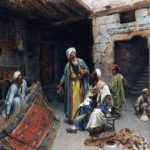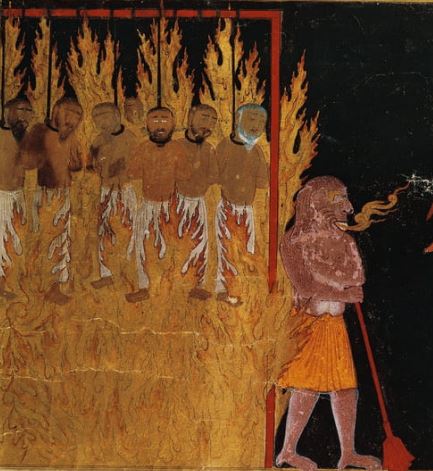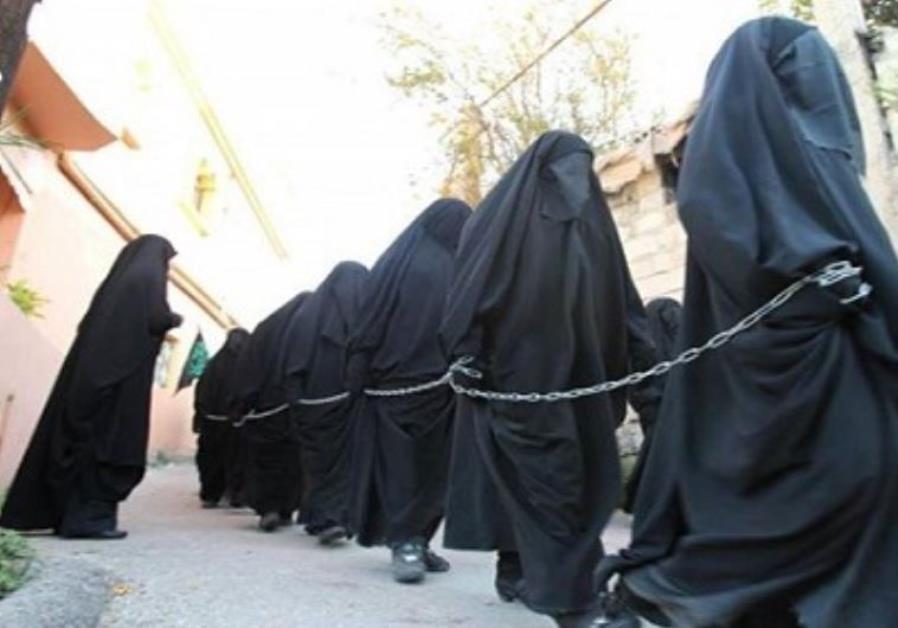
By studying the Qur’ānic text using discourse analysis, it becomes transparent that the Qur’ānic text is related to historical events that took place at a specific time and a specific place. This confirms that the Qur’ān is the product of a specific environment and time, and that it interacts with events and circumstances, and the changing challenges, aspirations, goals, and circumstances of concern to the community, the individual and their particularities, even intimate details.
IF WE ACCEPT that God has absolute power and omniscience as part of His basic attributes, then it is He who is the one who creates, commands, and decrees everything according to the Qur’ānic texts:
His command, when He intendeth a thing, is only that He saith unto it: Be! and it is. [Qur’ān XXXVI (Yā Sīn), 82]
He hath created everything and then ordained for it a measure [Qur’ān XXV (al-Furqān), 2]
He therefore does not need to send apostles and prophets to communicate His message to all people and change their behavior with the minimum of effort, and without the use of strength, oppression, conquest and captivity. For He is ‘the Most Merciful’ and in no need of descending from the highest heights and his throne in order enter a battle and kill:
You did not slay them, but it was Allah Who slew them, and you did not smite when you smote (the enemy), but it was Allah Who smote [Qur’ān VIII (al-Anfāl), 17].
He is able to make all people believers without shedding blood, harassing the innocent, and the taking of livelihood and women by force:
And if thy Lord had willed, all who are in the earth would have believed together [Qur’ān X (Yūnus), 99].
Wherein lies the wisdom that He does not act accordingly?
By studying the Qur’ānic text using discourse analysis, it becomes transparent that the Qur’ānic text is related to historical events that took place at a specific time and a specific place. This confirms that the Qur’ān is the product of a specific environment and time, and that it interacts with events and circumstances, and the changing challenges, aspirations, goals, and circumstances of concern to the community, the individual and their particularities, even intimate details. Abrogation[1] is the strongest evidence for the temporal specificity and historicity of the Qur’ān, its response to changes of circumstances, and to the dynamics of time like any other man-made text:
Nothing of our revelation do we abrogate or cause to be forgotten, but we bring (in place) one better or the like thereof [Qur’ān II (al-Baqara), 106].
At the beginning of his mission Muḥammad met with denial and rejection from his relatives and his clan. As a result, he turned resentful, angry and threatening. This characterizes the Qur’ānic verses that came as an expression of the subconscious mind of its speaker, bearing human and behavioral impulses deep-rooted in the depths of the personality. Lacking material strength at the time he was powerless to employ physical violence to force those who were rejecting him to accept his call. He had to content himself with the language of stern warnings. In was within the power of the all-powerful God to come to the aid of His Messenger effortlessly and insert the faith into the hearts of these adversaries, yet He did not do so and left open the door to times to come that would be full of conflict, fighting and bloodshed.
Is it reasonable for God – who is capable of action and who has foreknowledge of all things – to stoop to cursing and insulting an individual person, a creation of His, and command someone else to speak on His behalf, as was the case concerning Muḥammad’s uncle who had refused to respond to Muḥammad’s call:
May perdition overtake both hands of Abū Lahab, and he will perish! His wealth and what he earns will not avail him. He will be plunged in flaming fire, and his wife, the wood-carrier, will have upon her neck a halter of palm-fibre! [Qur’ān CXI (al-Lahab),1-5].[2]
Or is this nothing more than an expression of the psychological state in which Muḥammad was plunged when not expecting his own relative to stand against him. If it were a matter of God, He would surely have acted differently, not employ curses, insults and threatening language. God, who is able to make all people into believers, is also to have commanded the killing of those who contradict Muḥammad, even after He had previously permitted disbelief and freedom of conscience:
And say: the Truth is from your Lord, so whosoever wills let him believe, and whosoever wills, let him disbelieve [Qur’ān XVIII (al-Kahf) 29].
Yet here He is retreating from His tolerance, forgiveness and humaneness, when the opportunity for revenge presents itself at a time of preparedness and strength:
Then, when the sacred months have passed, slay the idolaters wherever ye find them, and take them (captive), and besiege them, and prepare for them each ambush [Qur’ān IX (al-Tawba), 5].
This seems to indicate planning, surveillance and preparation for war on the part of Muḥammad and his followers. Muḥammad loved money and women, and thus he singled out for himself what he desired, and permitted his companions to enjoy the spoils of war, captives, and what one’s right-hand comes to possess (i.e female slaves) beyond measure, because he knew that this would motivate them to engage in raiding, to fight and to endure hardship.
Marry such women as seem good to you, two and three and four; but if you fear that you will not do justice (between them), then (marry) only one or what your right hands possess [Qur’ān IV (al-Nisā’), 3].
Muḥammad also arrogated to himself one-fifth of all the spoils:
And know that whatever ye take as spoils of war, lo! a fifth thereof is for Allah, and (a fifth) for the Messenger [Qur’ān VIII (al-Anfāl), 41][3]
– because God does not need any share of that which has been taken. Muḥammad also allowed himself to marry any women he set his heart on, a privilege for himself alone and not for the other believers, this in addition to his wives and ‘what his right arm came to possess’:
… and a believing woman if she give herself unto the Prophet and the Prophet desire to ask her in marriage – a privilege for thee only, not for the (rest of) believers [Qur’ān XXXIII (al-Aḥzāb), 50].[4]
In this there appears to be an unjustified expansion made in order merely to satisfy a private lust. When Muḥammad fell desirous of Zaynab, the wife of his adopted son Zayd, the divinity immediately stepped in to respond:
But when Zayd had accomplished his want of her, We gave her to you as a wife [Qur’ān XXXIII (al-Aḥzāb), 37]
and hastened to provide justification for what Muḥammad was doing in his private, intimate life with his wives and servant-girls, removing from him any embarrassment:
O Prophet! why do you forbid (yourself) that which Allah has made lawful for you; you seek to please your wives [Qur’ān LXVI (al-Taḥrīm), 1].

Suggested Reading
This is without delving into everything in the Qur’ānic text concerning the relation between what Muḥammad’s subconscious mind comprehended – as a man who came with a new call, but who had impulses and desires of his own – and what he claimed as a divine revelation which, for the large part, seems to correspond to his personal desires and aspirations.
[1] See Glossary under ‘naskh’.
[2] This is a separate sūra of the Qur’ān in itself. [Ed.]
[3] The full five-part division is contained in the full verse: And know that whatever ye take as spoils of war, lo! a fifth thereof is for Allah, and for the messenger and for the kinsman (who hath need) and orphans and the needy and the wayfarer, if ye believe in Allah and that which We revealed unto Our servant on the Day of Discrimination, the day when the two armies met. And Allah is Able to do all things.
[4] The full verse is comprehensive: O Prophet! Lo! We have made lawful unto thee thy wives unto whom thou hast paid their dowries, and those whom thy right hand possesseth of those whom Allah hath given thee as spoils of war, and the daughters of thine uncle on the father’s side and the daughters of thine aunts on the father’s side, and the daughters of thine uncle on the mother’s side and the daughters of thine aunts on the mother’s side who emigrated with thee, and a believing woman if she give herself unto the Prophet and the Prophet desire to ask her in marriage – a privilege for thee only, not for the (rest of) believers – We are Aware of that which We enjoined upon them concerning their wives and those whom their right hands possess – that thou mayst be free from blame, for Allah is ever Forgiving, Merciful.
Main image: Qur’ān, Sūrat al-Masad: “May perdition overtake both hands of Abū Lahab …”


